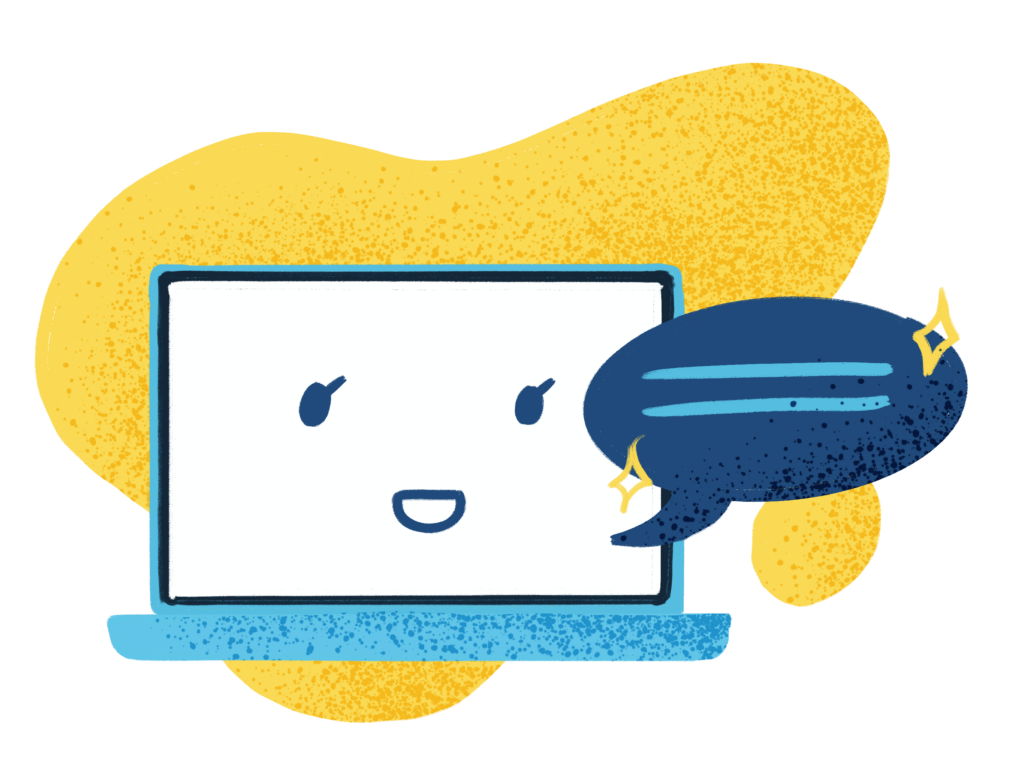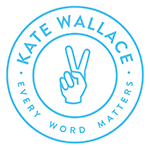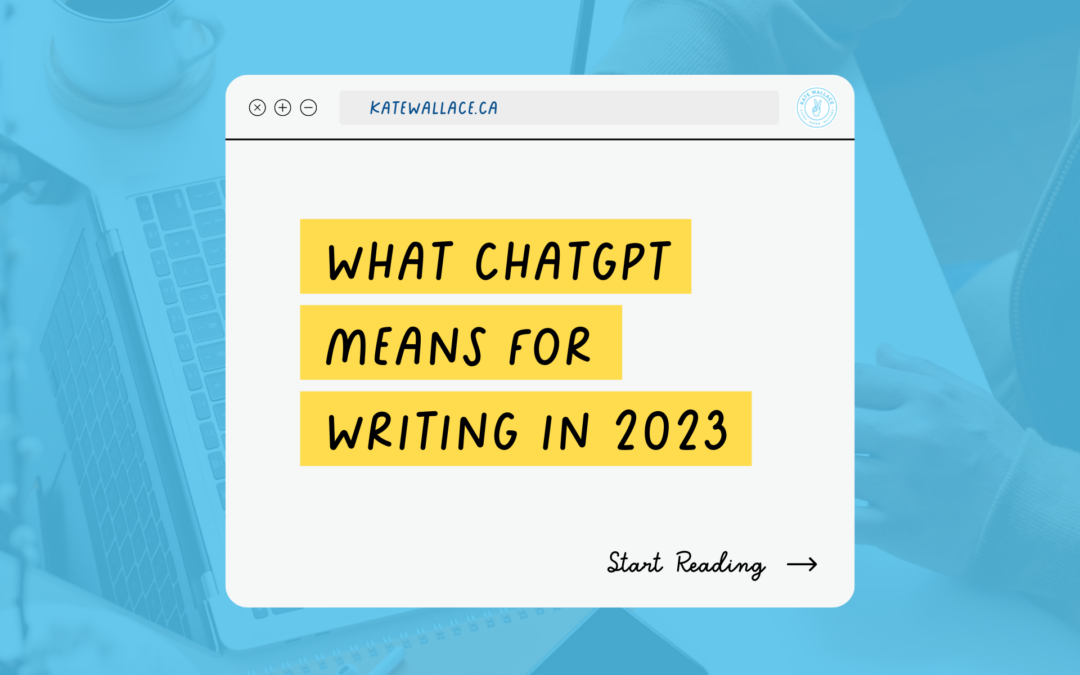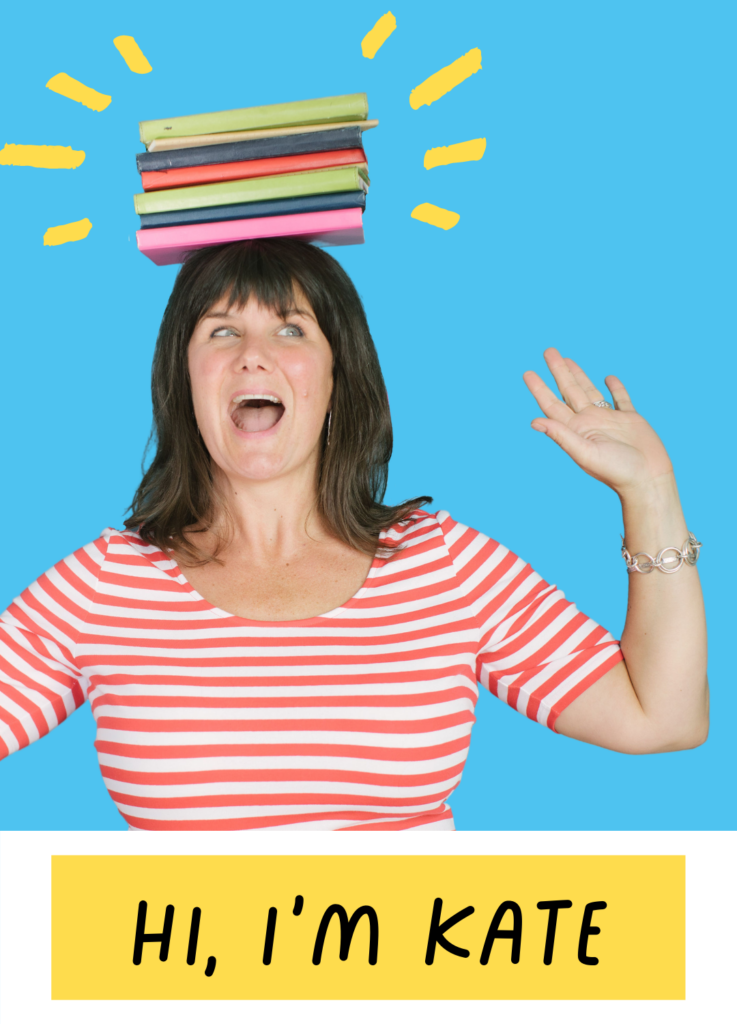Almost 20 years ago, my siblings and I co-wrote a poem for Grampy Wallace’s 80th birthday.
It was a funny, uneven, homemade piece of writing full of family in-jokes, such as how Grampy called Rhoda’s Sunday morning flea market “church” and would show us his second-hand purchases over a late breakfast after we got home from, you know, real church.
It was the first of many poems we’d write to each over the years on milestone birthdays and anniversaries. These personal, imperfect verses have become a family tradition.
I’ve been thinking of these poems since the explosive arrival of ChatGPT in December. It broke the Internet. People went gaga over the chatbot’s writing chops.
On LinkedIn, a tech entrepreneur I know gushed about it, sharing a poem he asked ChatGPT to write in the style of MLK’s I Have a Dream speech on the perils of helicopter parenting.
It was good, especially considering it took 6 seconds to spit out.
There have been many other examples–sonnets about hamburgers, blog posts in the voice of a valley girl– all generated in less time than it takes to reach for your dictionary. Maybe your social media feeds are full of them, too?
For writers, ChatGPT sparked a panic I’ve never seen. People were predicting the end of the profession. With the cost of writing pushed to zero (at least for now, and probably not for long), what is the writer’s value?
Good question. I’ll admit, I was nervous. And curious.
So I started playing around with this new tool. While its capabilities are impressive, its limitations are significant.

We’re Not Redundant Yet
What quickly became clear is that it can’t replace us humans. If anything, I think chat GPT and other AI writing tools will make your writing (yes, you, because we are all writers now) more valuable by pushing it to become more original and specific.
Beneath the hype is a stark truth: these tools don’t create anything. They’re only as good as what already exists, limited in their inputs: they can only work from what’s already been created.
So, back to Grampy’s birthday poem. This is just one example of an original writing assignment that ChatGPT can’t tackle. That kind of family lore exists nowhere but in our collective memories.
AI writing tools draw from existing online text that it synthesizes into new content. They rely on existing writing structures, so results are literally formulaic and regurgitative–and those aren’t descriptors of engaging writing…or birthday poems to grandfathers full of personal references.
AI expert Gary Marcus recently said on the Ezra Klein Show that these chatbots are “masters of pastiche.” They synthesize massive amounts of text on the Internet into writing that looks convincing.
But as Ian Bogost notes in ChatGPT is Dumber Than You Think, an excellent piece in The Atlantic that sees the chatbot more as a toy than a tool, convincing and good are not synonymous. AI can’t make aesthetic decisions.
“The AI can generate credible writing,” Bogost writes, “but only because writing, and our expectations for it, has become so unaspiring.”

The Human Edge
So, maybe you’re asking, ‘Well, isn’t that what creativity is, combining old things in new ways?’
Good point. I’ve said that very thing myself. I’llI update that statement: Creativity is combining old things in new ways through the lens of your unique experience.
That’s what chat GPT lacks: experience. And it’s the heart of creativity and originality.
The American essayist Fran Lebowitz talked to Eleanor Wachtel on Writers and Company about how writers need to have experiences to have something to say. She pointed out that, unlike music or math, literature lacks prodigies. There’s no Mozart of writing because you need to undergo those experiences that shape your understanding of yourself and the world, and harness language to express them.
ChatGPT can compile and synthesize (click here for a Top 10 of ChatGPT Limitations I asked ChatGPT to compile for me, it’s pretty thorough). But it understands nothing.
Perhaps most crucially for writing, it cannot understand what is happening below the surface of words, which is where meaning is made. I’m talking about context, regionalism, little-c culture, allusion, and all the non-literal work of language, from metaphors to puns.
The best writing, stories, and content are fresh, new, and surprising. That takes a human, with our unique experiences of the world, our wit, our sense of nuance, and our ability to adjust tone to a specific audience or use figurative language. We’ve got the robots beat on all these fronts.
Let’s Zoom Out
What if we reframed the discussion from one based on defeat and panic to consider the essential question: what is my writing for?
If it’s to produce reams of generic, recycled content pastiches, then ChatGPT is your new best friend.
If it’s to provide value, which is to say, a fresh and original perspective on the world via your life and work, then at best, it’s a digital handmaiden.
Remember, we already use AI tools like Grammarly to help us write better without it replacing us writers. We still have to do the heavy lifting: the original, specific, creative work of bringing experience to the page.

Authentic Matters More Than Ever
ChatGPT is like a sewing machine, a tool that can do tedious, repetitive work. AI writing is like fast fashion: semi-disposable, generic, imitative and of questionable quality.
Just as fast fashion drove a heightened interest in the authentic, the handmade, and the artisanal so will Chat GPT only elevate the value of original, handmade writing.
Most of the writing I do in my business is based on conversations with my clients, their customers, and stakeholders to extract information, ideas, and stories that don’t exist anywhere online. It’s deep interviewing to get at the answer behind the surface. That’s where the value lies. ChatGPT lacks this vital research and discovery tool of having real conversations and going out into the world to discover new things. It’s confined to the internet. Vast, sure, but not total.
These machines are smart and getting smarter all the time. But they can’t replace the need for humans, and our experiences, insights and knowledge, to create original writing and content that stands out in a sea of bland, lookalike, regurgitative, and generic writing.
We still need your stories.


